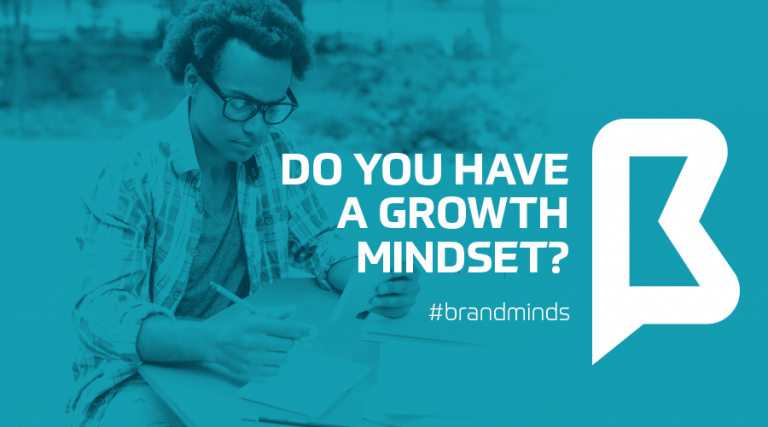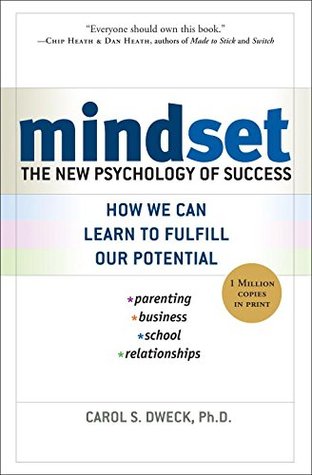It’s a warm summer evening and John is walking home. He walks slowly, one hand in the pocket and the other holding his briefcase tight. People rush by, but he doesn’t look at them. He’s in his late forties, but he’s in good physical shape. All he’s thinking of is the office meeting he attended four hours earlier. Things are not going well for him. He’s a salesman, he was successful ten years ago, but now he feels outdated and out of skills. His younger colleagues are so in tune with the new technologies, expertly juggling multiple social media accounts, optimisation apps and lead generation funnels. And they close so many deals! Selling is not what it used to be. What worked ten years ago doesn’t work now. Well, that’s it for me, I can’t do what the Millennials do!

If John’s story is familiar to you, keep reading!
Growth mindset vs fixed mindset
[bctt tweet=”The fixed mindset myth – You either have it or you don’t #growthmindset ” username=”brand_minds”]
People with a fixed mindset believe that intelligence and abilities are fixed entities. They believe they have a certain amount of intelligence and there’s nothing you can do about it. The world keeps changing, permanently evolving; these people note that the abilities which had helped them achieve success in past years are now outdated. The people with a fixed mindset think they can’t do anything to improve and they can’t change. They blame their lack of success on the world and are prone to depression.
[bctt tweet=”The Growth mindset benefit – Exercise your mind #growthmindset” username=”brand_minds”]
People with the growth mindset believe intelligence and abilities are malleable. Their set of skills and abilities can change and grow through dedicated activities: practice, improving through failures, working through setbacks. They believe they can transition into new roles and can build and develop new abilities. The mind is a muscle and must be exercised constantly in various and different ways to keep it in great shape.
Carol S. Dweck’s expandable theory of intelligence

Carol S. Dweck
image source: timeshighereducation.com
Carol S. Dweck is a researcher and psychologist, Professor of Psychology at Stanford University. Her research has focused on why people succeed and how to foster success. She is the author of Mindset: The New Psychology of Success.

image source: goodreads.com
In her book, she shows how success in school, work, sports, the arts, and almost every area of human endeavor can be dramatically influenced by how we think about our talents and abilities. Fixed-mindset individuals dread failure because it is a negative statement on their basic abilities. Growth mindset individuals don’t mind or fear failure as much because they realize their performance can be improved and learning comes from failure.
The fixed mindset creates an internal monologue that is focused on judging: This means I’m a loser or This means I’m a better person than they are.
The internal monologue of people with a growth mindset is not about judging themselves and others. They look for opportunities to learn and grow through constructive action. They tell to themselves: What can I learn from this? How can I improve?
What does Fixed vs. Growth mindset mean for companies?
Her research found that the fixed and growth mindset influences companies as follows:
- People with the fixed mindset do not admit and correct their deficiencies; a company that cannot self-correct cannot survive;
- When bosses become controlling and abusive, they put everyone into a fixed mindset. This means that instead of learning, growing, and moving the company forward, everyone starts worrying about being judged. It starts with the bosses’ worry about being judged, but it winds up being everybody’s fear about being judged. It’s hard for courage and innovation to survive a company-wide fixed mindset;
- Negotiators with a growth mindset were much more able to push past obstacles and reach an agreement that benefited both sides;
- Managers with a growth mindset notice improvement in their employees, whereas those with a fixed mindset do not (because they are stuck in their initial impression);
- Employees evaluated their growth-mindset managers as providing better coaching for employee development;
- Managers with a growth mindset actually sought more negative feedback from their subordinates. They wanted to learn how to improve their management techniques and were not threatened by the idea of hearing some negative things about themselves.
4 steps to change your mindset
Find extensive information on how to change your mindset on mindsetonline.com.
Step1. Learn to hear your fixed mindset “voice.”
“Are you sure you can do it? Maybe you don’t have the talent.”
“What if you fail—you’ll be a failure”
“People will laugh at you for thinking you had talent.”
Step 2. Recognize that you have a choice.
How you interpret challenges, setbacks, and criticism is your choice. You can interpret them in a fixed mindset as signs that your fixed talents or abilities are lacking. Or you can interpret them in a growth mindset as signs that you need to ramp up your strategies and effort, stretch yourself, and expand your abilities. It’s up to you.
Step 3. Talk back to it with a growth mindset voice.
THE FIXED-MINDSET says “Are you sure you can do it? Maybe you don’t have the talent.”
THE GROWTH-MINDSET answers, “I’m not sure I can do it now, but I think I can learn to with time and effort.”
FIXED MINDSET: “What if you fail—you’ll be a failure”
GROWTH MINDSET: “Most successful people had failures along the way.”
Step 4. Take the growth mindset action.
Over time, which voice you allow yourself to hear becomes pretty much your choice.
Conclusions
- Mindset change has enabled people to pursue their goals more effectively;
- Leaders are made, not born and made more by themselves than by any external means;
- Everyone, of whatever age and circumstance, is capable of self-transformation;
- When people are taught a growth mindset, they start to be sensitive to improvement;
- A company which employs fixed mindset people cannot survive and be innovative;
- Managers with a growth mindset inspire their employees to seek constant improvement and developing of skills;
- Employers with a growth mindset drive innovation and support the company’s struggle to overcome industry changes.





















